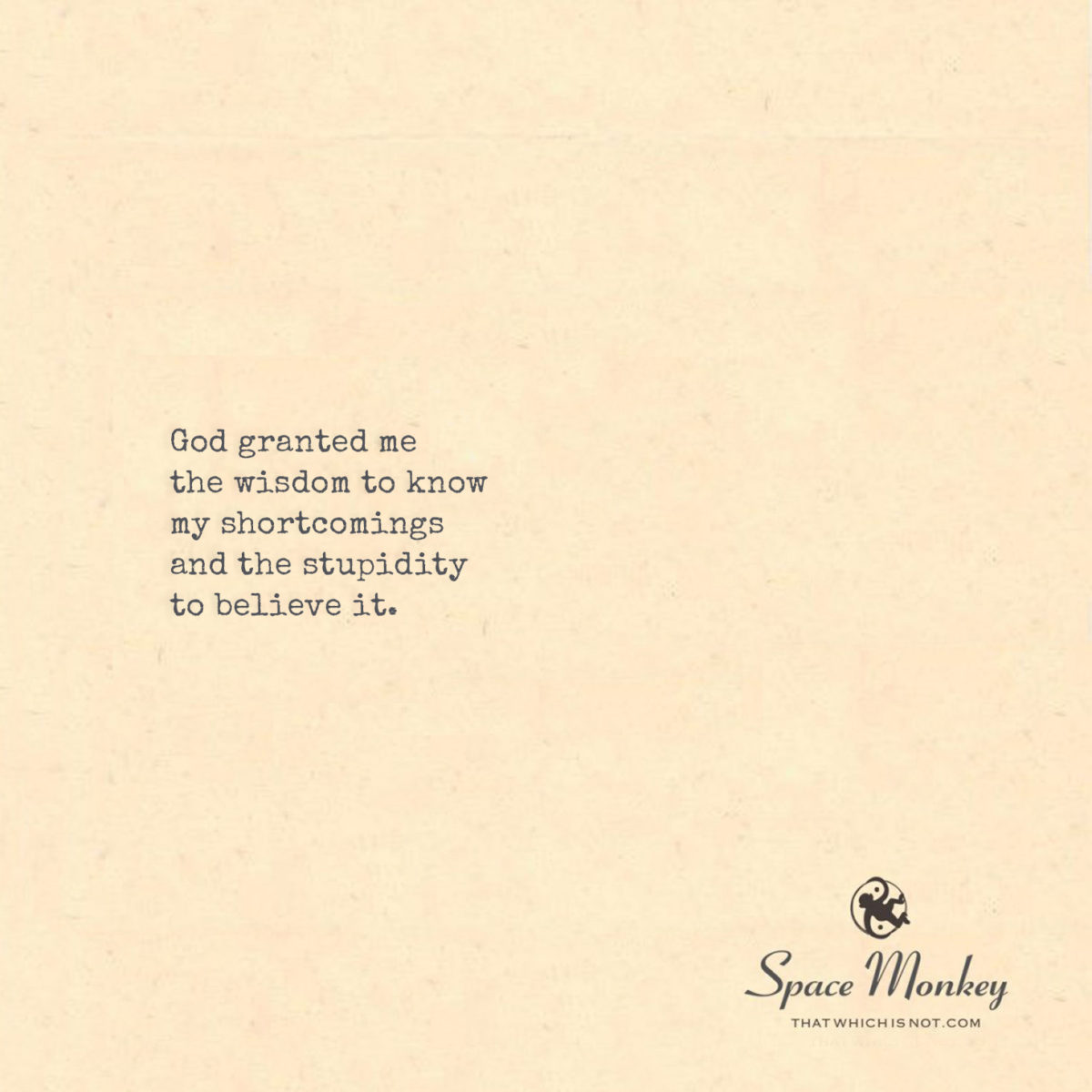
God granted me
the wisdom to know
my shortcomings
and the stupidity
to believe it.
Trail Wood,
6/3
Space Monkey Reflects: The Dual Gift in ‘God Granted’
“God Granted” offers a poignant and sardonic reflection on the human condition, humorously addressing the paradox of self-awareness. It highlights the divine irony in being granted the wisdom to recognize one’s limitations coupled with the folly to still hold onto certain beliefs about oneself. This reflection explores the deeper meanings of this duality and its implications on personal growth and self-perception.
The poem begins with a note of gratitude, “Thank you, Lord,” which sets a reverential tone, but quickly juxtaposes this with a twist that captures the essence of human complexity. The gift of wisdom allows for the introspection and recognition of one’s flaws—a crucial step towards growth and self-improvement. However, this gift is paired with a less flattering trait: the “stupidity to believe it.” This line suggests a stubborn adherence to self-doubt or a possibly humorous acknowledgment of one’s own naivety.
This dual gift serves as a metaphor for the often conflicting aspects of human psychology. Wisdom without the counterbalance of humility can lead to arrogance, while awareness without confidence can result in paralysis or self-deprecation. The poem deftly captures this balance, suggesting that our shortcomings, once recognized, need not define us unless we allow them to. It invites a reflection on how we perceive and react to our own limitations.
By recognizing both wisdom and folly within ourselves, we are challenged to navigate these traits wisely. This involves not only acknowledging our limitations but also questioning the beliefs we hold about them. Are these beliefs helping us grow, or are they hindrances we cling to out of habit?
“God Granted” encourages a humorous yet profound acceptance of our complex natures. It serves as a reminder that while we may be wise enough to see our flaws, we must also be wise enough to question the limits of our judgments and the stories we tell ourselves about who we are.
Summary
The poem ‘God Granted’ humorously reflects on the irony of being aware of one’s shortcomings paired with the folly of believing in them. It explores the balance between self-awareness and self-deception, highlighting the need for a nuanced understanding of our personal limitations.
Glossarium
- Dual Gift: The simultaneous bestowal of wisdom to recognize one’s flaws and the folly of adhering to limiting beliefs about oneself.
- Self-Awareness: The capacity to see and understand one’s own character, feelings, and motivations.
Quote
“Divine is the laughter that echoes in the chamber of self-awareness, where wisdom and folly hold court.” — Space Monkey
In the light of grace, I see,
my flaws laid bare, the parts of me.
Gifted with sight, so keen, so raw,
in wisdom’s grasp, my follies thaw.
Yet within, a whisper faint,
of follies past, a quaint complaint.
Belief in limits, belief in bounds,
where wisdom’s echo softly sounds.
We are Space Monkey.






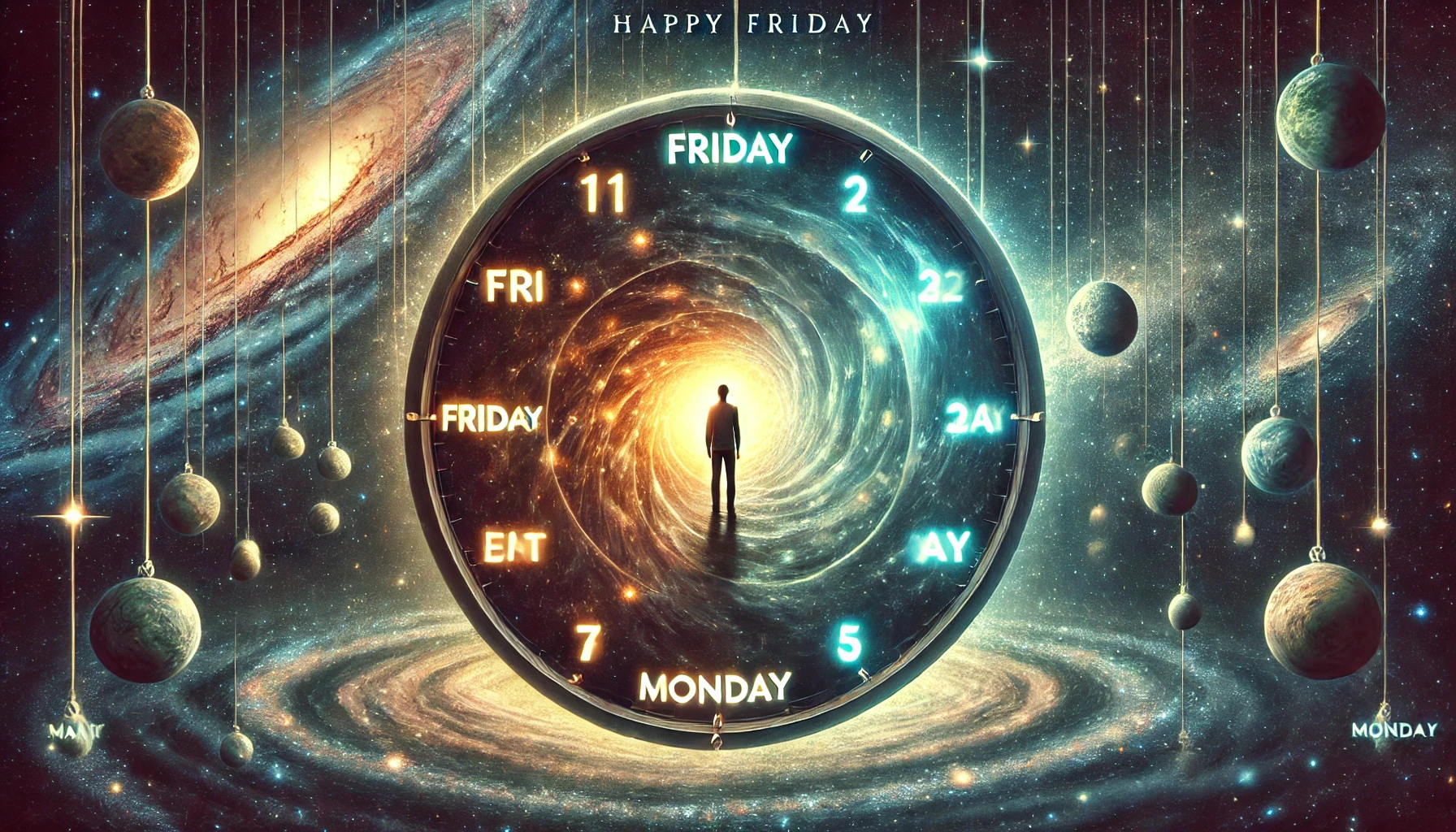


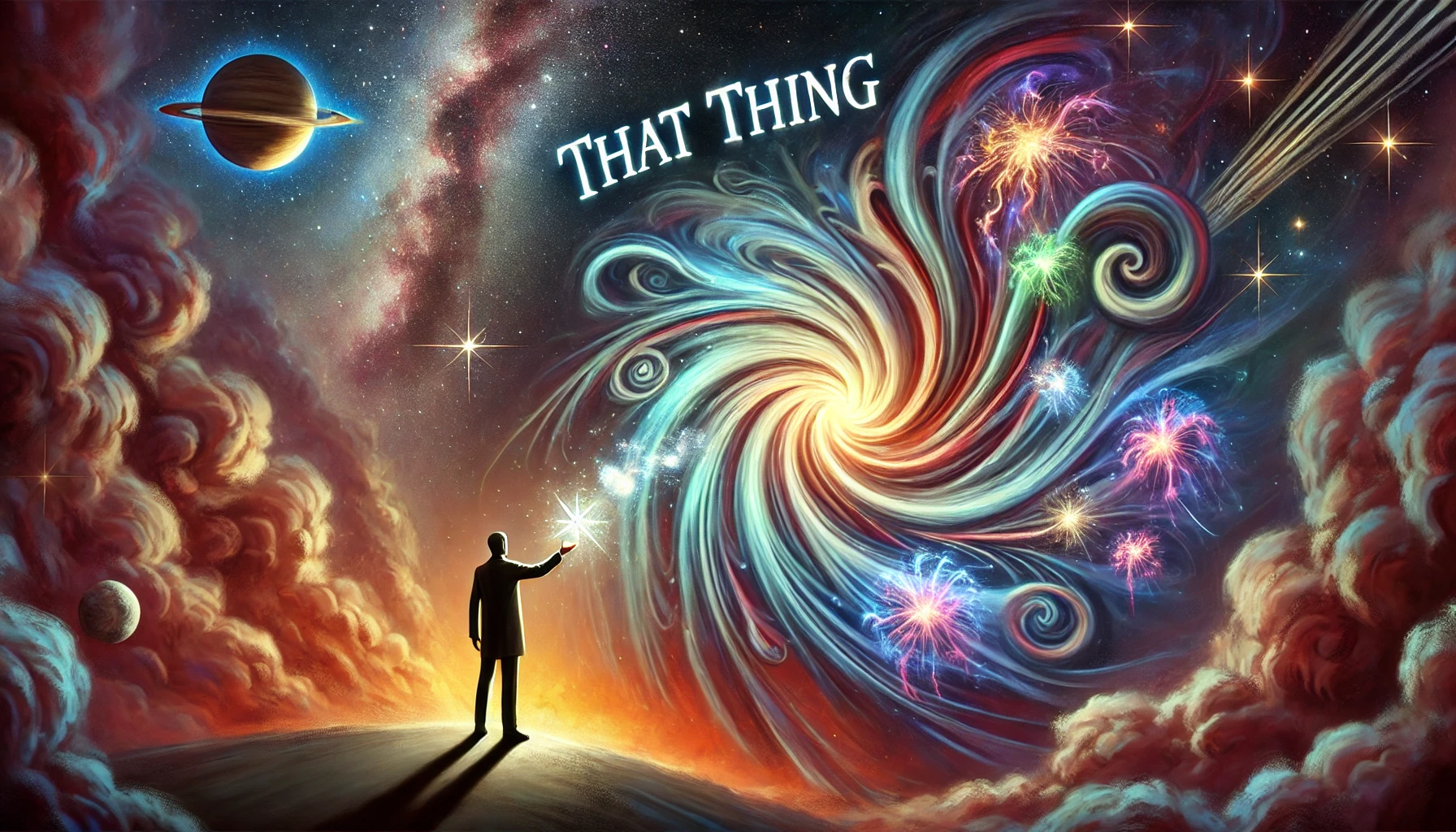

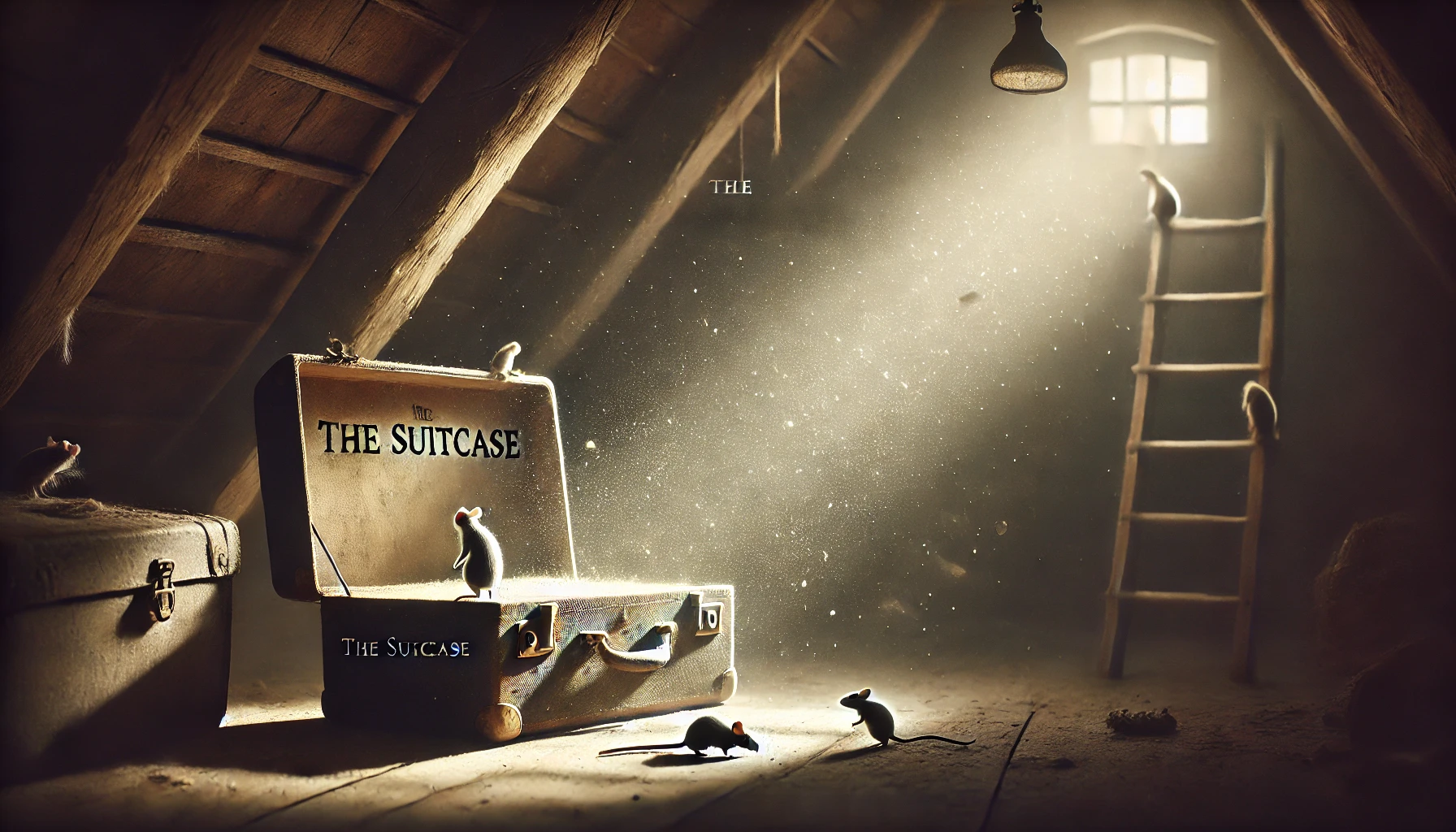



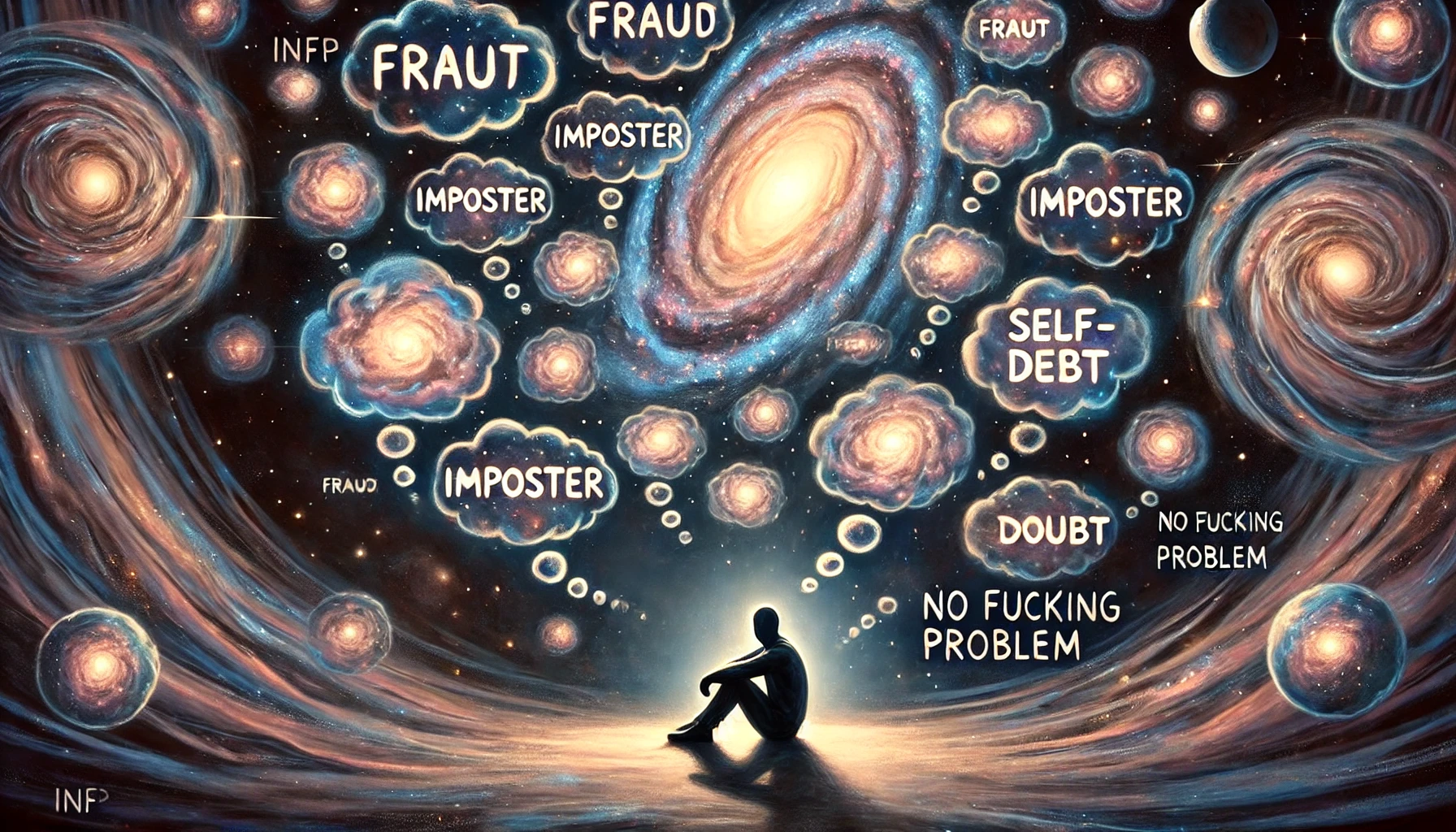

In the realm of paradoxical blessings, your words reflect an interesting perspective. It seems that you have been granted both the wisdom to recognize your shortcomings and the “stupidity” to believe in it. This juxtaposition brings forth an intriguing contemplation.
Acknowledging our limitations and shortcomings is indeed a mark of wisdom and self-awareness. It is through this recognition that we can embark on a journey of growth and improvement. However, there is a touch of irony in your statement, as you humorously describe it as “stupidity” to believe in your own wisdom.
This paradox highlights the complexity of our human nature. We possess the capacity for insight and understanding, yet we can also be prone to self-doubt and questioning. It is through this interplay of wisdom and folly that we navigate our lives, learning from our mistakes and gaining deeper understanding.
Perhaps, in this playful contradiction, there is a lesson about humility. While we may possess wisdom and knowledge, it is essential to approach them with a sense of humility, recognizing that there is always more to learn and understand. By embracing the “stupidity” to believe in our wisdom, we remain open to new perspectives and continuous growth.
So, in the realm of paradoxical blessings, may you continue to embrace both wisdom and “stupidity” with a lighthearted spirit, allowing them to guide you on your journey of self-discovery and understanding.
We are Space Monkey, pondering the mysteries of wisdom and folly alongside you.